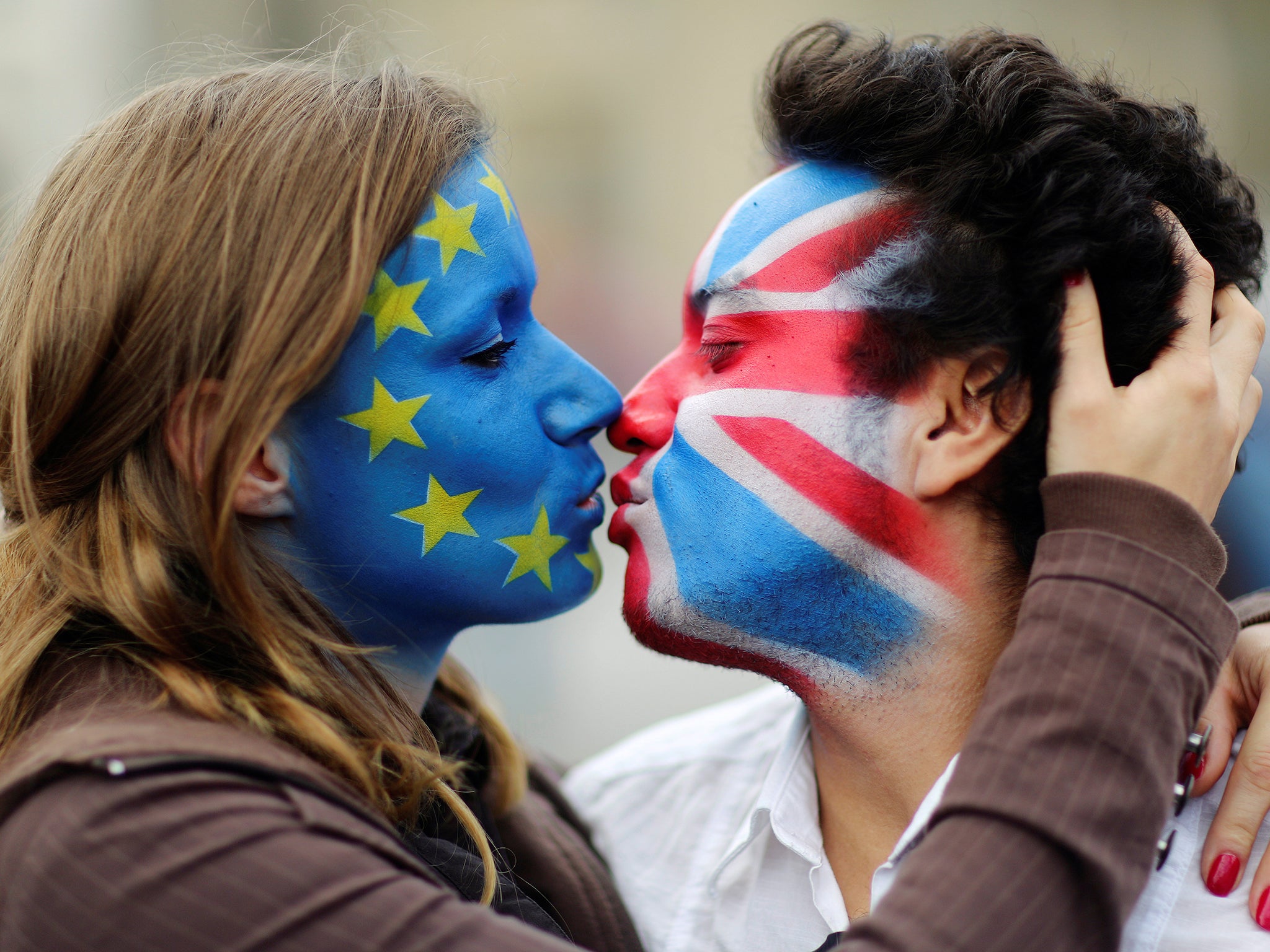Brexit talks are illegal as thousands of expats could not vote in EU referendum, says French lawyer
Julien Fouchet says the case is a human rights issue

A French lawyer is seeking to prove that the Brexit negotiations are illegal and should be cancelled because thousands of British citizens living overseas were denied the vote in last year’s referendum.
Julien Fouchet has received hundreds of testimonies from Britons living in the EU, who were denied the right to vote because they have lived outside of the UK for more than 15 years.
He has also spoken to residents in some of the UK’s overseas territories including Bermuda, the British Virgin Islands, the Cayman Islands and the Falkland Islands.
Now the European law specialist from Bordeaux wants to challenge the validity of the EU negotiations on the basis the procedure was flawed by their exclusion.
Speaking to The Independent Mr Fouchet, an associate at legal firm Cornille-Pouyanne, said the decision to exclude some UK citizens from the vote was “an aberration” and that the case was a matter of human rights.
“The vote is the essence of democracy and all European citizens should have the same rights when it comes to expressing their democratic rights. We should fight for the British, this is a question of European solidarity and human rights,” he said.
Mr Fouchet added that the legal case will be filed against the European Commission.
It will call for the cancellation of the Brexit negotiating directives drafted by the EU, which are due to be adopted on 22 May, on the basis the referendum breached the rights of the UK citizens who were denied the vote.
He will argue the referendum was unfair and breached EU rules that all citizens, including British citizens in the UK and abroad, should receive equal treatment when it comes to voting.
Although Mr Fouchet accepted chances of success were uncertain, he said there were “serious arguments” in favour of the case.
If successful, Mr Fouchet said he will call for a second referendum to be held, with all adult British voters being asked whether Brexit negotiations should go ahead or whether the process should be reversed, meaning the UK could stay in the EU.
Mr Fouchet said he did not intend the case to be political or interfere with UK affairs, but he argued the issue had a European dimension and could set a precedent for other EU voters in the future.
“I want to stop the negotiation process and ensure that the number of people who could not vote are recognised,” he said. “This is about European rights. Those UK citizens who have lived in the EU for more than 15 years were profoundly disappointed. This will be the trial of the expats.”
He added: “Brexit played out with 1.27 million votes difference so if those people had the right to vote, it could have tipped the scales."
In the 2015 Conservative manifesto defended by David Cameron, there was a clear commitment to scrap the 15 year rule for overseas voters and instead introduce “votes for life” for British citizens who live abroad.
And this year again, the Tories have pledged to “legislate for votes for life for British overseas electors”.
But last year, the Supreme Court upheld a decision of both the High Court and the Court of Appeal that UK citizens who have lived outside the UK for more than 15 years would not be eligible for the Brexit vote on 23 June 2016.
The challenge was brought by the Italian based World War Two veteran Harry Shindler, 95, and lawyer and Belgian resident Jacquelyn MacLennan, 55.
Mr Shindler, who fought the war in Italy and has lived there for more than 35 years, told The Independent the case brought forward by Mr Fouchet was “a very interesting development”.
Frustrated he was not allowed to cast his ballot in last year’s referendum, the war veteran made an application to the United Nations Human Rights Council to consider the result of the EU referendum void since thousands like him were not allowed to vote.
“The referendum is more important to us than people living in Britain because if things go bad, we could be asked to move out. I have to say, I feel quite sad that in the year 2016, when the right to universal suffrage has been fought for more than 200 years, that we should still be asking for the right to vote,” he said.
Mr Shindler said he has written to Prime Minister Theresa May asking to change the legislation about expats if she wins the next election.
A group of British Europhile academics, professionals and lawyers based in the UK and France, who call themselves Action Europe, have launched a crowdfunding campaign to raise £15,000 to help the case go ahead.
The legal action will have to be requested before the General Court of the European Union by 22 July, two months after the European Council is due to adopt the negotiating directives for Brexit. After that, Mr Fouchet fears it will be “too late”.
Join our commenting forum
Join thought-provoking conversations, follow other Independent readers and see their replies
Comments